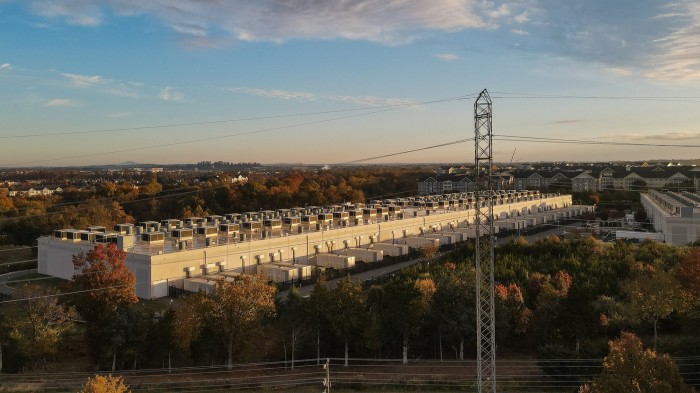Unlock the Editor’s Digest for free
Roula Khalaf, Editor of the FT, selects her favourite stories in this weekly newsletter.
Amazon is seeking to raise $12bn in its first US bond sale in three years, becoming the latest big tech group to turn to debt markets to fund a spending spree on artificial intelligence infrastructure.
The Seattle-based ecommerce and cloud computing giant launched the bond sale on Monday and is targeting approximately $12bn across about six investment-grade bonds, according to a person close to the deal.
Goldman Sachs, JPMorgan Chase and Morgan Stanley are managing the sale, according to regulatory filings.
Amazon said: “Like all companies, we regularly evaluate our operating plan and make financing decisions — like entering into a credit agreement or issuing bonds — accordingly. The proceeds from this issuance will be used to support business investments, fund future capital expenditures, and repay upcoming debt maturities.”
Big tech companies are in an expensive arms race to build data centres that can power AI. In recent months, many have pivoted to funding large construction projects with debt rather than spending their cash reserves.
Google parent Alphabet sold $25bn of bonds earlier this month, Meta sold $30bn in the largest corporate bond sale so far this year in October, and Oracle sold $18bn of bonds in September.
US companies have issued more than $200bn worth of corporate bonds this year to fund AI-related infrastructure projects, which analysts have warned could “flood” debt markets and store up new risks for credit investors.
The borrowing spree is expected to push US issuance of corporate bonds to a record $1.8tn next year, according to JPMorgan. Goldman Sachs had previously estimated that the “jumbo” tech bond sales accounted for more than a quarter of all net supply of US corporate debt this year.
Amazon’s cloud computing unit Amazon Web Services is the world’s largest provider of leased computing power. Like its rivals, it has expanded investment on infrastructure amid a boom in demand for AI services. Capital expenditures rose 61 per cent to $34.2bn in the third quarter of 2025, bringing the total it has spent so far this year to $89.9bn.
Those investments have doubled the amount of computing capacity Amazon has access to since 2022 and it is planning to double it again by 2027, according to comments by chief executive Andy Jassy during its most recent earnings call.
It signed a $38bn deal to supply computing power to OpenAI this month, giving the start-up access to hundreds of thousands of its Nvidia chips for seven years.
The issuance of AI bonds has hit prices in recent weeks, as investors anticipate hundreds of billions of debt coming in the next few years.
“The sudden onslaught of supply is weighing a bit on the market. This AI issuance is coming fast and furious . . . These may be trading at tight spreads, but they promise to reshape the entire market,” said Robert Tipp, head of global bonds at PGIM, explaining that the surge in issuance would probably drive yields on longer-dated debt significantly higher.




